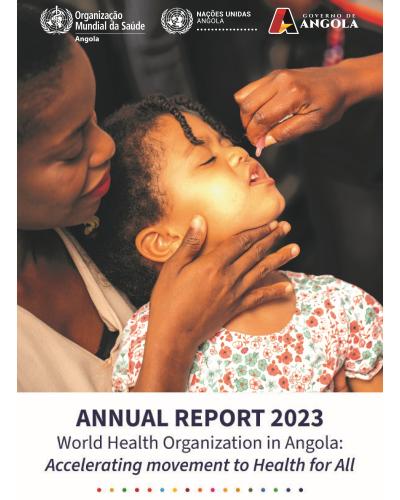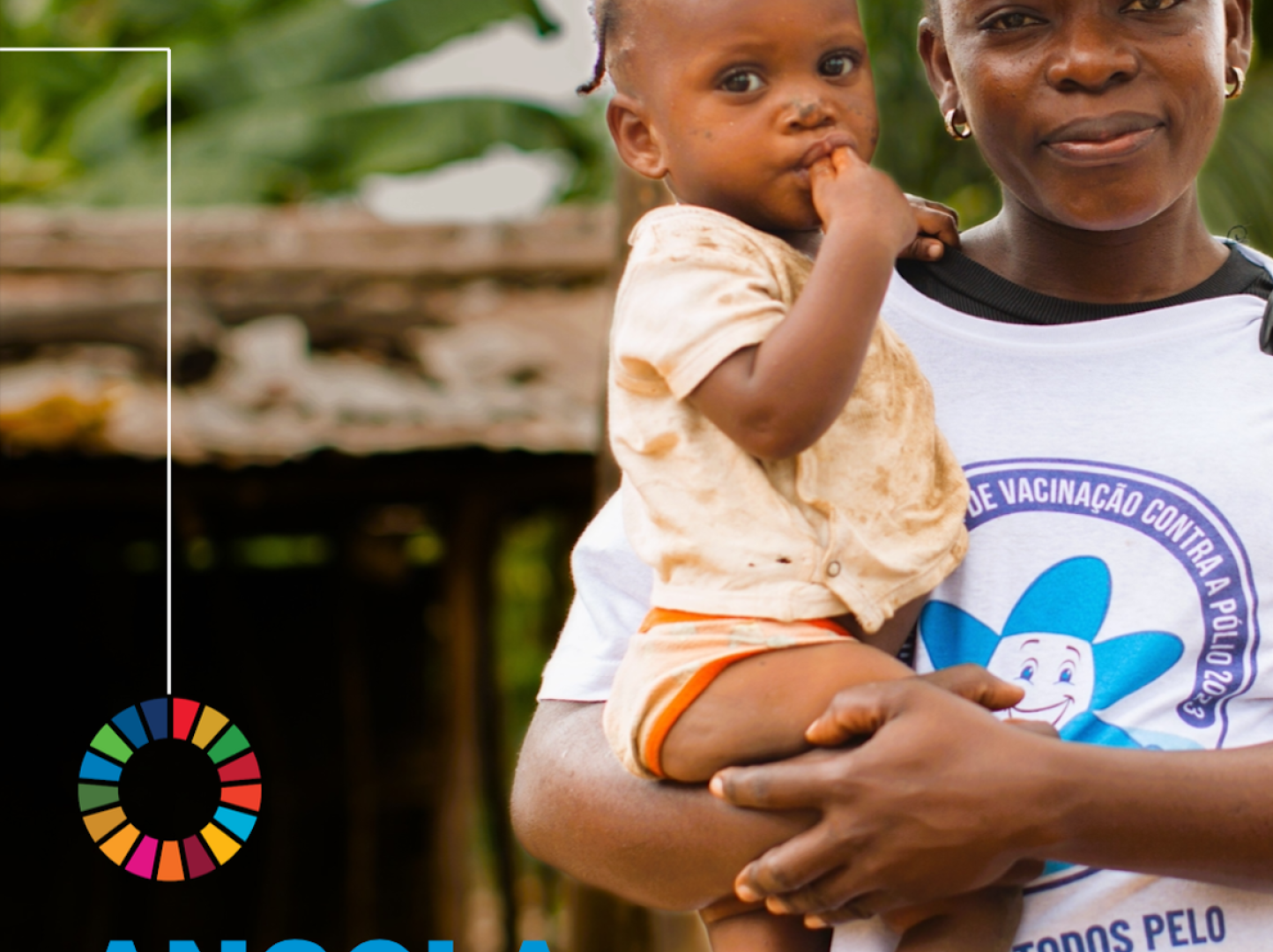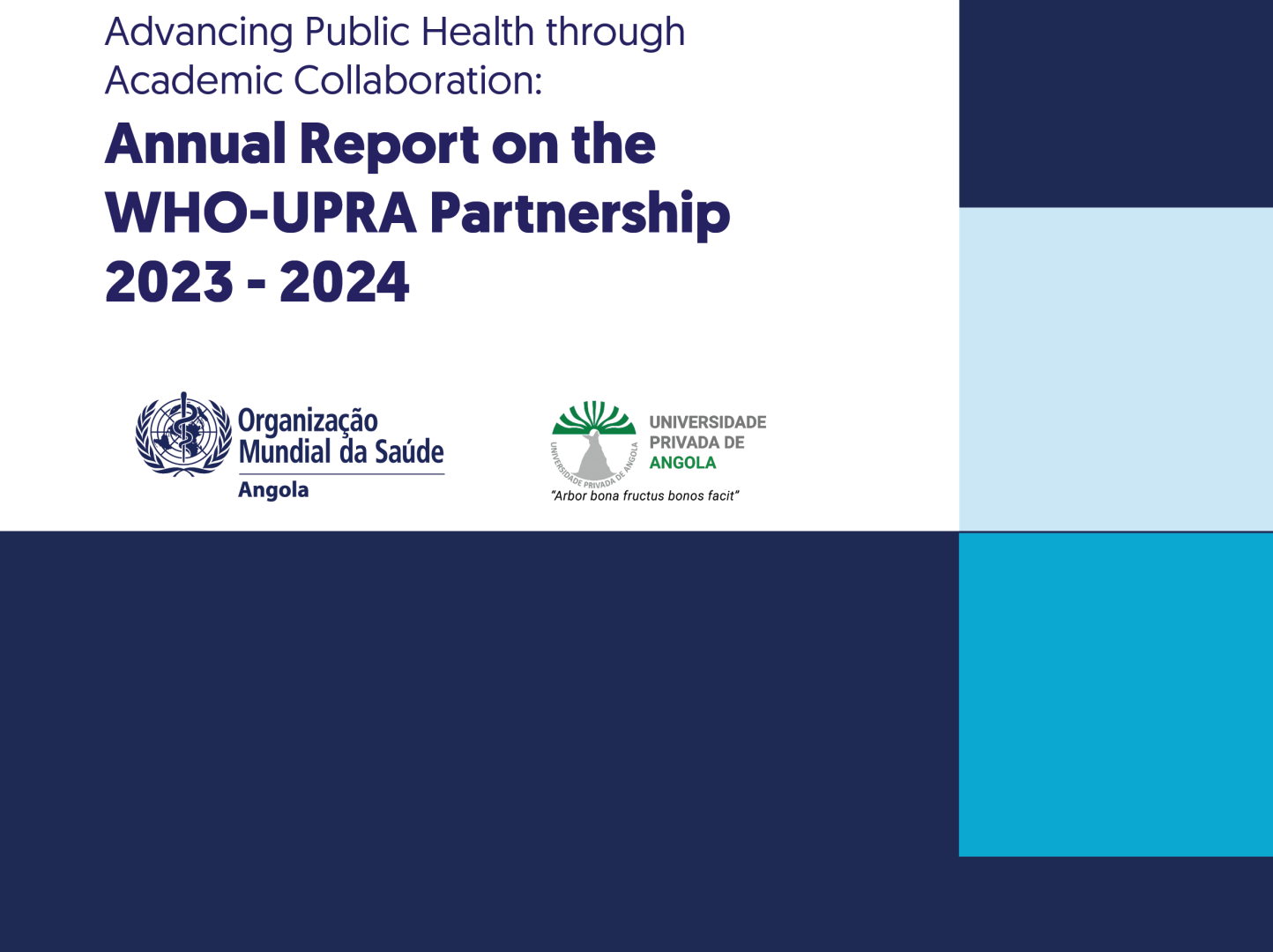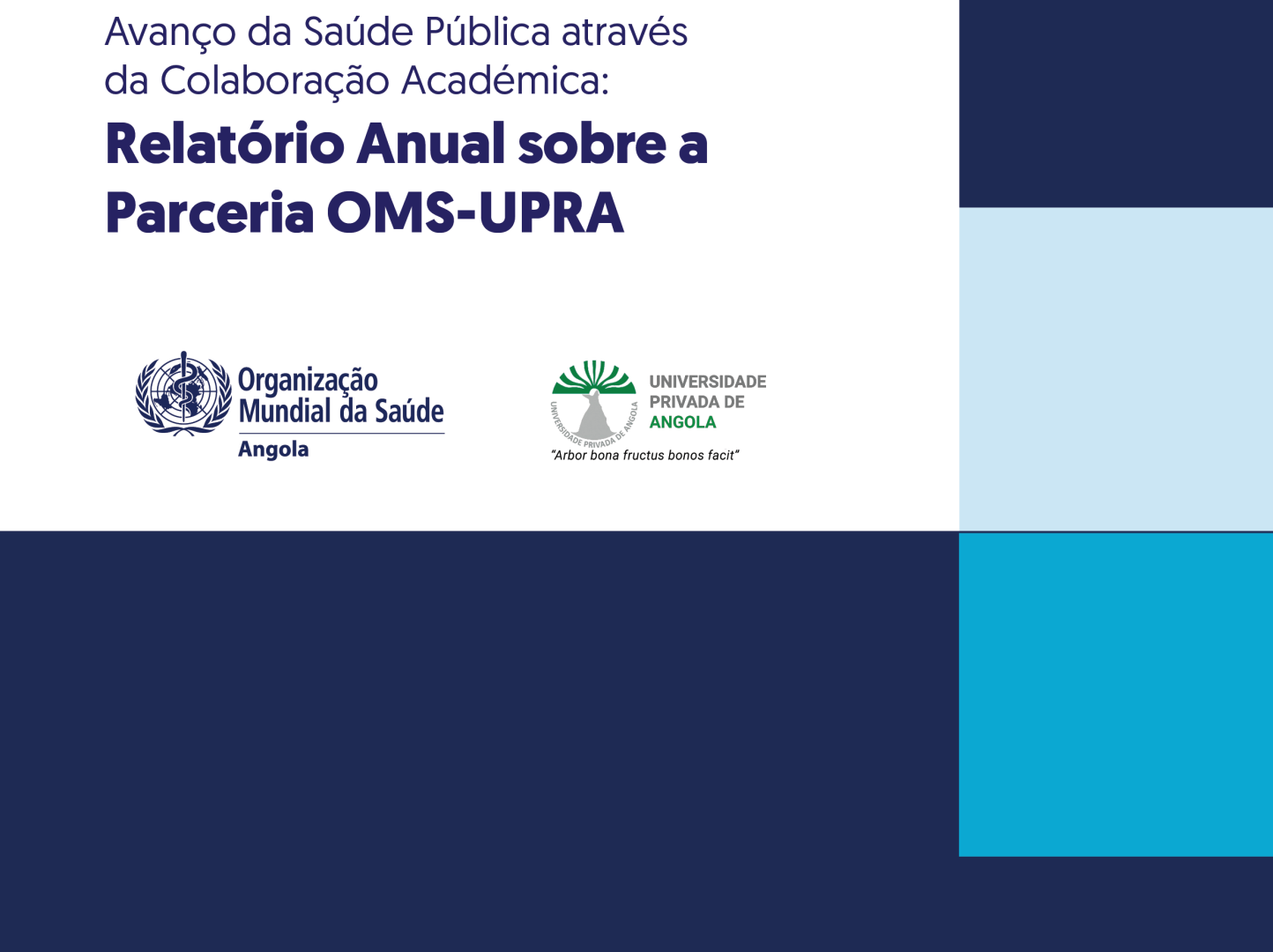WHO Angola: Annual Report 2023

Executive Summary
The year 2023 was important for health and well-being in Angola. In his State of the Nation address on 16th October 2023, the President of Angola, João Manuel Gonçalves Lourenço GColIH highlighted the significant investments made in health by the country, with an overall goal of accelerated enhancement of capacity to provide needed essential services for every person in Angola. The WHO in Angola was aligned with this vision and prioritized actions that would facilitate its attainment, within the context of the WHO’s own results framework.
Strategically, WHO in Angola completed its 5-year cooperation strategy with Angola, which provides a blueprint of how it will support the health sector in Angola to attain its strategic objectives. These are defined in the areas of strengthening health systems, facilitating integrated care, disease prevention and control, health security, and ensuring well-being through healthier populations.
Specific achievements were made in the area of Universal Health Coverage. In HIV, the Dolutegravir treatment protocol was adopted, and a study of mother-to-child HIV transmission to better target the services initiated. A “Zero Malaria Starts with Me” campaign was rolled out, to maintain the push toward malaria control. The country also agreed on a new Tuberculosis control strategy, to accelerate better TB
intervention coverage and uptake. Services targeting Neglected Tropical Diseases, such as Guinea worm were expanded across the country. In recognition of the growing non-communicable disease threat, the development of an NCD control strategy was initiated, and the hospital’s capacity to respond to the increasing burden was significantly expanded.
In the area of maternal health, the specific focus was on the re-vitalization of the integrated management of childhood illnesses (IMCI) initiative as a means for coordinated and comprehensive services for children. Support to the monitoring of maternal and perinatal deaths was also provided. Efforts towards MNT elimination were also enhanced, and a strategic plan was developed. A program to reduce the number of children who have not received any vaccinations (zero dose campaign) was also started, which should improve the overall childhood vaccination status. Two rounds of a national polio vaccination campaign were successfully conducted during the year, together with efforts to enhance the polio surveillance capacity.
In the area of health emergencies, the country was at the end of the COVID-19 pandemic. However, vaccination for COVID-19 continued with WHO support. In addition, the country conducted a COVID-19 Acter Action review to document lessons with the pandemic response. A Joint External Evaluation exercise was also conducted which highlighted the status of the health security capacity in the country. Specifically,
infection prevention and control initiatives were supported as part of improving the overall quality of care provided to the people of Angola.
Finally, engagements were made in the area of well-being to improve healthy cities and road safety, particularly in collaboration with the Luanda province, which is the most densely populated part of the country.
The year presented several opportunities for greater collaboration with the Government and the health partners, which will lead to marked improvements in health and well-being in the medium to long term. By the end of 2023, the health sector was in a better place, and ready to play its role as stipulated in the National
Development Plan of the country.








